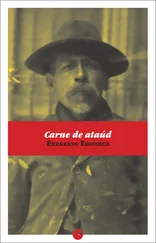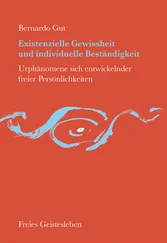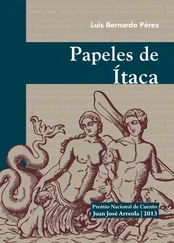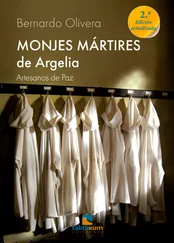Bernardo Atxaga - Obabakoak
Здесь есть возможность читать онлайн «Bernardo Atxaga - Obabakoak» весь текст электронной книги совершенно бесплатно (целиком полную версию без сокращений). В некоторых случаях можно слушать аудио, скачать через торрент в формате fb2 и присутствует краткое содержание. Год выпуска: 2010, Издательство: Graywolf Press, Жанр: Современная проза, на английском языке. Описание произведения, (предисловие) а так же отзывы посетителей доступны на портале библиотеки ЛибКат.
- Название:Obabakoak
- Автор:
- Издательство:Graywolf Press
- Жанр:
- Год:2010
- ISBN:нет данных
- Рейтинг книги:3 / 5. Голосов: 1
-
Избранное:Добавить в избранное
- Отзывы:
-
Ваша оценка:
- 60
- 1
- 2
- 3
- 4
- 5
Obabakoak: краткое содержание, описание и аннотация
Предлагаем к чтению аннотацию, описание, краткое содержание или предисловие (зависит от того, что написал сам автор книги «Obabakoak»). Если вы не нашли необходимую информацию о книге — напишите в комментариях, мы постараемся отыскать её.
Obabakoak
The Observer
Obabakoak — читать онлайн бесплатно полную книгу (весь текст) целиком
Ниже представлен текст книги, разбитый по страницам. Система сохранения места последней прочитанной страницы, позволяет с удобством читать онлайн бесплатно книгу «Obabakoak», без необходимости каждый раз заново искать на чём Вы остановились. Поставьте закладку, и сможете в любой момент перейти на страницу, на которой закончили чтение.
Интервал:
Закладка:
Heinrich had spent three long years working in Hamburg but he had not made a single friend, neither among the people of the port nor in his neighborhood. He hadn’t in fact needed them, because far from seeming a burden to him, the solitude that had appeared in his life when he arrived there had seemed almost a relief, a liberation, and also because the correspondence he maintained with his sister helped him through any difficult times.
That day, however, while he waited for the bus, he regretted that his life had come to this and he searched every corner of his memory for a name, a face. Letting himself be carried along by his imagination, he saw himself in the living room of that “friend’s” house, with a cup of coffee before him, talking about Margarete, telling him how she had been his only sister and, for years, since they were orphaned, had been all the family he had, and that she was a girl of twenty-four, with very blond hair and a very different personality from his, happy, always happy, a great partygoer, and you know what, she had a real weakness for raincoats, for umbrellas too, you can’t imagine how well she dressed and once, at a time when we were rather comfortably off, we went to spend a fortnight in a village on the French Riviera and she said, yes, Heinrich, it is a pretty village, but a place with no rain cannot help but be vulgar and after that we had an argument about the habits of seagulls… and, from the window of the bus, Heinrich watched the seagulls circling over the jetties, looking for food among the rotten wood and scrap iron. These were different seagulls. There was no name in his memory. There was no friend.
He got off the bus and ran home. He needed to hide, to flee the people filling the streets that afternoon, sheltered from the rain, milling around by shop windows or in cinema foyers. Without exception, they all seemed stupid, hateful: stupid because they knew nothing of Margarete’s death; hateful because he knew that not one of them was prepared to share his misfortune.
Heinrich spent more than an hour lying facedown on his bed. Then, feeling a little calmer, he rummaged around in the drawers and collected together all the objects that spoke to him of his sister: the photographs, a little box containing a lock of her hair, the fancy notebook she had given him when they made their trip to the south of France. Lined up on the table, the objects formed a little shrine.
“How come you didn’t see the train, Margarete?” he asked, sitting down at the table. And the ceremony begun with that question lasted until dawn.
But the shrine brought him no consolation. On the contrary, it made the void he could feel inside him grow ever larger. The objects refused to speak of the good times that the Wetzels, brother and sister, had spent together; they spoke solely and vociferously of Margarete’s absence.
He was thinking of bringing the ceremony to a close when he noticed that there was something missing from the objects on the table. Something fundamental perhaps: the dress Margarete had forgotten to take with her after her last visit. He kept it in the wardrobe in his bedroom.
“I’ll put it on,” he thought.
After all, they were twins. For a long time the two of them had been almost impossible to tell apart. Then why try to make do with objects when he already carried a great part of Margarete within himself?
While he walked down the hallway it didn’t occur to him that what he was about to do would change his life completely. His intention was simply to reclaim his sister from death, but only for a moment, just until the ceremony was over. Afterward everything would return to normal.
But the transformation was made as soon as the dress touched his skin, in the same way fairy godmothers in children’s stories — with just one touch of their wand, in an instant — change an ugly house into a palace. Because right at that moment, when he looked in the mirror and saw a woman remarkably like Margarete, Heinrich finally understood. Suddenly, all the circumstances of his life made sense, both the unease that had accompanied him in his native city and the solitude he had experienced later. Even his hatred for the world of the port had an explanation now.
Heinrich felt proud, prouder than he had ever felt. He had spent years like the boy lost in the woods, his body covered in scratches, shouting and shouting without anyone ever hearing him. But there would be no more scratches, no more shouting. He had found the path that would lead him out of the woods, he could see where they ended, he could see the open, friendly landscape that awaited him.
“From now on we will be one and the same person, Margarete,” he murmured.
These were, of course, words uttered out of the depths of insomnia and exhaustion, but they were, nonetheless, a true reflection of what Heinrich was feeling. From that day forward, he would be a woman.
“I will never forget you, dear sister,” he added. And with that promise his earlier decision was sealed.
He sat down again at the table and wrote two notes. In the first, which he signed as Margarete, he informed the director of the port of the death of Heinrich Wetzel and begged him to send her any outstanding wages due to her brother. The second note was a list of all the things, beginning with lipstick, that he would have to buy the following day.
Before going to bed, he stopped by the window. The city was still sleeping, but there were already signs that day was dawning: the rays of light slicing through the clouds, the yellow reflection of the sun in the windows of the tallest buildings. It would not be long now before the alarm clocks in the bedrooms of all the houses would begin to sound. After that — everyone, men and women, young and old — would rush out into the street.
He sighed. For the first time in his life, he felt a desire to mingle with other people.
Such was the joy this change had brought to his life that not even a shadow of a doubt crossed his mind. He trusted in the future, or rather, he imagined it as radiant. He was convinced that Margarete’s spirit would act as a guide who — like a fairy godmother — would always take him to beautiful places, to welcoming houses where he would find good friends.
It seemed, moreover, that this future in which he had placed his trust was ready to go along with him, that it wanted to give him everything he had dreamed of. One day, he went for a stroll through the city streets and ended up dancing at a party held in a mansion full of magnificent rooms; on another, he went to a pub and got an invitation to spend the weekend at a country house; on yet another day, he received an affectionate letter.
His diary, until then empty, grew fuller by the day and was soon crammed with names and telephone numbers. Barely a month after the day that he had first tried on his sister’s dress, he was accepted at the Atropos, one of the best private clubs in the St. Pauli district. Sometimes he even got up on stage and sang.
One day, while he was at the Atropos, he was introduced to Walter, a forty-year-old teacher. He was tall with very dark hair and eyes and he wore a red silk neckerchief.
“Would you like to share a bottle of champagne with me?” asked Walter.
“I’d be delighted, though I don’t usually,” replied Heinrich.
“I’m so pleased I met you. I feel happier than I have for a long time. Really.”
Walter’s dark eyes smiled.
Heinrich spent two days unable to get that smile out of his mind. On the third day, Walter phoned him. On the fourth, while they were walking in a park, they decided to embark on a stable relationship.
For Heinrich it was the happiest period of his life. Walter was his first love, and, perhaps because of that, it was a love outside of time, exclusive, a love that absorbed his whole being. Nothing existed beyond those dark eyes.
Читать дальшеИнтервал:
Закладка:
Похожие книги на «Obabakoak»
Представляем Вашему вниманию похожие книги на «Obabakoak» списком для выбора. Мы отобрали схожую по названию и смыслу литературу в надежде предоставить читателям больше вариантов отыскать новые, интересные, ещё непрочитанные произведения.
Обсуждение, отзывы о книге «Obabakoak» и просто собственные мнения читателей. Оставьте ваши комментарии, напишите, что Вы думаете о произведении, его смысле или главных героях. Укажите что конкретно понравилось, а что нет, и почему Вы так считаете.











